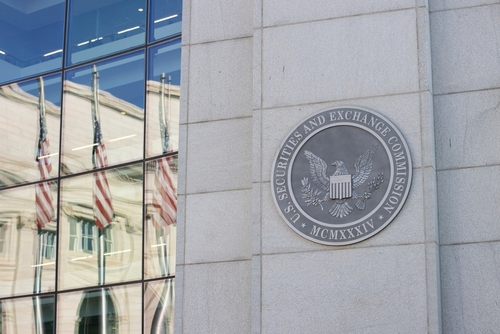
On October 10, 2023, the Securities and Exchange Commission (SEC) adopted significant amendments to the rules governing beneficial ownership reporting under Sections 13D and 13G of the Securities Exchange Act of 1934, as amended (the “Reporting Amendments”). These Reporting Amendments represent a transformative update to filing deadlines—marking the first change in nearly half a century—designed to enhance investor access to material information within today’s fast-paced financial markets.
Schedule 13D and 13G Filings and the Reporting Amendments – Brief Overview
Schedules 13D and 13G are forms required by the SEC to be filed by individuals or entities that acquire beneficial ownership of more than 5% of a voting class of a company’s equity securities. Schedule 13D is typically filed by “active” investors who may intend to influence or control the company, while Schedule 13G is typically filed by “passive” investors who do not intend to exert such influence.
The Reporting Amendments introduced several key changes to the filing deadlines for Schedules 13D and 13G:
- Schedule 13D Filings: Investors must now submit filings within five business days after acquiring beneficial ownership of more than 5% or losing eligibility for Schedule 13G (previously 10 calendar days).
- Amendment Filings: Required within two business days of a material change (previously mandated to be filed “promptly”) for Schedule 13D filers. For Schedule 13G, the amendment filing requirements differ; amendments must generally be filed within 5 business days after the end of the month in which any change occurred.
- Schedule 13G for Filings: Initial filings must occur within five business days following the acquisition of more than 5%.
- For Qualified Institutional Investors (entities that manage large amounts of investment capital and are subject to specific regulatory oversight) and Exempt Investors (such as investors who acquire securities without the intention of influencing or controlling the issuer, and certain government entities): The initial filing deadline has been established as 45 days following the end of the calendar quarter, as opposed to year-end.
Recent Enforcement Actions
Following the enactment of the Reporting Amendments, on September 25, 2024, the SEC announced a notable enforcement sweep aimed at addressing the troubling prevalence of late filings for beneficial ownership and insider transaction reports pursuant to Sections 13 and 16 of the Securities Exchange Act. This initiative targeted 23 individuals and two public companies, resulting in fines that underscore the SEC’s unwavering commitment to enforcing compliance with federal securities laws. Individual penalties ranged from $100,000 to $200,000, while public companies faced fines between $40,000 and $750,000. These enforcement actions highlight the serious implications arising from reporting failures.
This latest enforcement effort is particularly significant as it reflects the SEC’s ongoing initiative to ensure timely reporting and accountability among corporate insiders—specifically officers, directors, and significant shareholders—who are mandated to disclose their financial activities concerning their companies. This crackdown indicates the SEC’s evolving strategies, including the utilization of advanced data analytics to detect patterns of non-compliance, particularly targeting habitual offenders who repeatedly neglect their reporting obligations.
Key Takeaways
The main takeaway from these developments is that the SEC is placing increased emphasis on the importance of timely and accurate reporting requirements under Sections 13D and 13G of the Securities Exchange Act of 1934, as amended. This focus was evident in the Reporting Amendments and continues to be reinforced through the SEC’s escalating enforcement measures. The recent enforcement actions serve as a clear signal that the SEC is committed to ensuring compliance and will take significant steps to address any non-compliance with reporting obligations under Sections 13D and 13G of the Securities Exchange Act of 1934.
In light of these developments, we recommend that public companies and 5% beneficial owners (whether persons or groups) consistently monitor applicable reporting requirements and 13D and 13G filings, especially in relation to related parties, such as controlling shareholders, and in connection with transactions involving the issuance of shares that may result in an investor crossing the 5% ownership threshold.
Should you require further details or clarifications regarding how these changes may impact your business or reporting requirements, please do not hesitate to contact our team.
Shibolet & Co. Law Firm
This update is provided as general information only and may not be relied upon in any individual case without additional legal advice.











